Jaber Al-Ahmad stadium: 'Ghost' ground's relaunch hit by FIFA wrangle
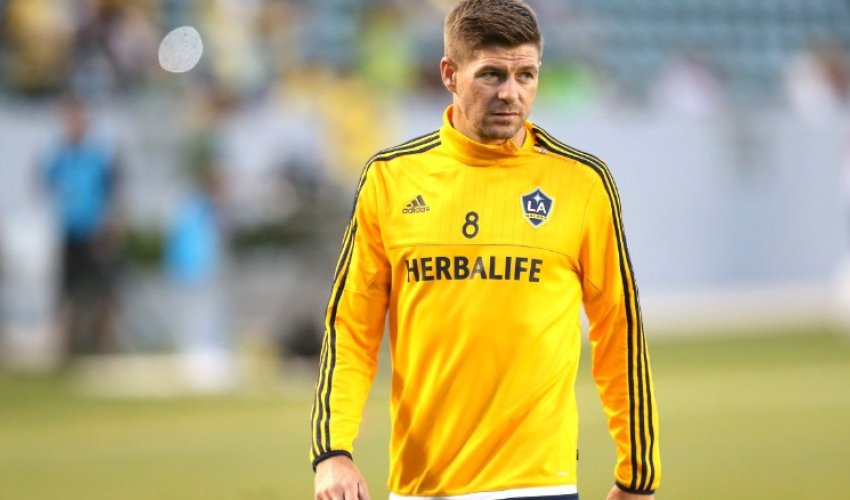
A star-studded match to help mark the rebirth of a soccer "ghost stadium" looks like it has been impacted by football politics.
Due to feature the likes of Steven Gerrard, Andrea Pirlo and Carlo Ancelotti in FIFA-banned Kuwait, the game had been scheduled for the long-awaited reopening of the country's national arena.
Organizers had released a statement saying Gerrard of the LA Galaxy, New York City FC midfielder Pirlo and former Real Madrid coach Ancelotti were to participate in the ceremonial match -- dubbed the Kuwait Champions Challenge -- on December 18 at the Jaber Al-Ahmad International Stadium.
But their involvement looks in doubt following FIFA's stern letter to its member federations warning them "not to enter into any sporting contact with the Kuwait Football Association (KFA) and/or its teams during the suspension of the association."
Gerrard's management team did not respond to CNN's questions as to whether the LA Galaxy star would travel to Kuwait. The KFA also did not respond to CNN's request for comment.
If Gerrard and Pirlo did take part they could risk suspension not only for themselves, but also incur disciplinary action to the English and Italian football associations, according to the letter.
The FIFA document -- headed "Suspension of the KFA" -- also bars Kuwaitis who participate in the local league from involvement in the match.
It is unclear whether Ancelotti -- a three-time Champions League winner as a manager, who is the designated coach for the international team -- would be sanctioned as the 56-year-old Italian is not affiliated with any club.
The Football Champions Tour -- the organizers with links to dozens of retired or semiretired pros, managers and even referees -- says the match will go ahead as planned, though a spokesman would not confirm the involvement of specific players or coaches.
If the match does take place, it will deliver the first action to the 60,000-seater stadium in five years -- and just the second football game since its completion in 2007.
Locals have been gearing up for the event, with thousands of tickets distributed for free online.
"I'm looking forward to this as a sports fan, to see all these international world-renowned footballers in Kuwait," said Tarek Aleryan, the longtime host of Kuwait Television's "Spotlight on Sports."
"Hopefully this will bring us into a new year, and a new period of better things for Kuwait."
Given the stadium's checkered history -- along with Kuwait's complicated status in international sports -- the match is unlikely to be a run-of-the-mill exhibition, no matter who is on the pitch.
Banned by the football and Olympic governing bodies, Kuwait is prohibited from staging even international friendlies. Rather than fielding the national team in Friday's game, an online poll vote was due to determine who represents the Kuwaitis.
Though Kuwait is an outcast at FIFA and the International Olympic Committee (IOC), it still holds a level of influence at these major sports bodies given a former senior government official sits on the board of both organizations.
Ex-cabinet minister Sheikh Ahmad Al-Fahad Al-Sabah serves on FIFA's executive committee as well as the IOC, while heading up the Olympic Council of Asia.
Although his positions within FIFA and the IOC are not impacted, the country's football ban prohibited a scheduled exhibition between Belgium and Italy that had been set to inaugurate the vacant Kuwaiti landmark in October.
"Hopefully these things will be resolved -- the issue with FIFA, the IOC -- so we can move forward and have official games at the stadium," Aleryan said.
Other leading soccer figures due to take part include former players Luis Figo, Ronaldinho, Robert Pires, Albert Puyol and Jamie Carragher as well as refereeing great Pierluigi Collina.
Before the Belgium-Italy match was called off, the stadium's relaunch was scheduled to coincide with Kuwait's hosting of the Gulf Cup of Nations this month -- a tournament it has won 10 times.
But technical problems shelved that plan in August, leaving the tournament's status in limbo.
In the meantime, the FIFA ban has derailed Kuwait's World Cup 2018 run. Last month's qualifying match against Myanmar was canceled, leaving Kuwait's status in jeopardy.
Until then, the Gulf emirate had won three of its five qualification matches, scoring 12 and conceding just one goal.
"Everyone in general is upset about being banned, especially by FIFA," said Aleryan. "Kuwait was doing fairly well in the World Cup qualifications. We were looking forward to the next stage and seeing how far we could go, and it's just another setback."
FIFA's decision marks the third ban on Kuwait's international football activities in recent years for the infraction of "government interference."
A FIFA rule -- Article 17 -- is designed to prohibit political interference in football. FIFA argues that a new set of sports laws in Kuwait undermines its football association's autonomy.
In a rarely achieved double-ban, the IOC also barred Kuwait from competition in October -- its second suspension in five years -- while ordering the Olympic Council of Asia (where Al-Sabah serves as president) to relocate its headquarters out of Kuwait by next year.
The IOC indicated that Kuwait's athletes would still be able to participate in Rio 2016, though they would compete as independents under the Olympic flag.
"That's very sad actually, and we hope that does not happen," said Aleryan. "They should be participating as athletes representing their country with the flag of Kuwait on their jerseys."
Leading up to the London 2012 Games, Kuwait's Olympic status was also in jeopardy, with the IOC lifting its ban just two months before the opening ceremony. Ultimately, 10 Kuwaitis participated in London, and shooter Fehaid Al-Deehani won a bronze medal.
It's been an interesting 2015 for Kuwait, notably when talk of FIFA power broker Al-Sabah succeeding his ally Sepp Blatter -- the outgoing head of world soccer, who is serving a 90-day ban -- surfaced earlier this year.
Ultimately, the 52-year-old Al-Sabah, who is also the president of the Association of National Olympic Committees, decided not to seek the additional title of FIFA president.
A member of the IOC since 1992, Al-Sabah comes from a lineage of power within global sporting confederations.
His father was Sheikh Fahad Al-Ahmad Al-Sabah, the founder of the Kuwait Olympic Committee and head of its football association, who was killed by Iraqi forces invading Kuwait on August 2, 1990.
The Kuwait Football Association is now headed by Sheikh Ahmad's younger brother, Sheikh Talal Al-Fahad Al-Sabah. Another brother, Sheikh Khaled Al-Fahad Al-Sabah, chairs Al Qadsia Sporting Club, tied for the most football league titles in Kuwait.
The late Sheikh Fahad Al-Ahmad left a colorful mark at the 1982 World Cup finals in Spain, Kuwait's first and only run at the tournament.
Dressed in traditional garb, he marched onto the pitch in Valladolid to successfully convince Soviet referee Miroslav Stupar to retract a goal scored by France, after Kuwaiti players complained that a whistle from the crowd forced them to stop play.
(CNN)
www.ann.az
Similar news
Similar news
Latest news 
More news 

























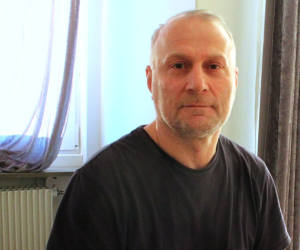


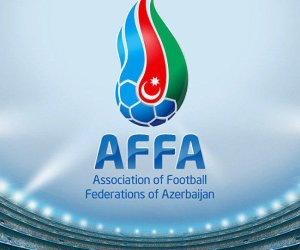
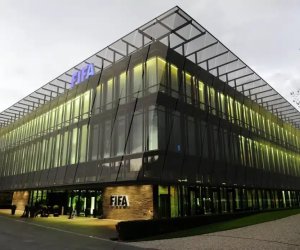

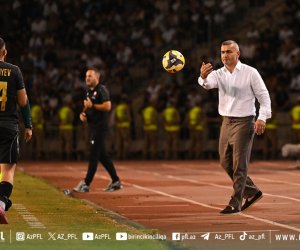



 Photo
Photo 



 Video
Video 

